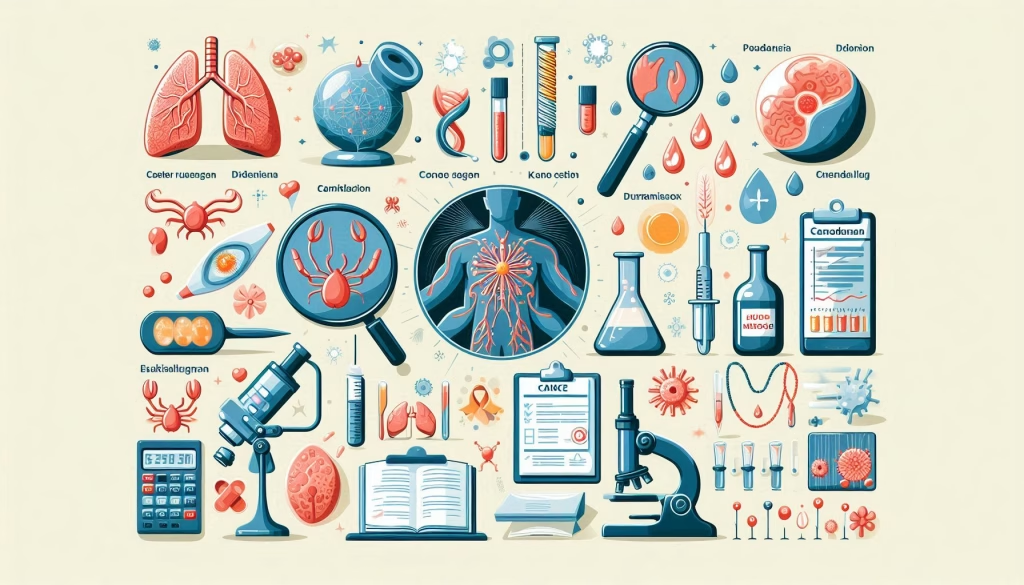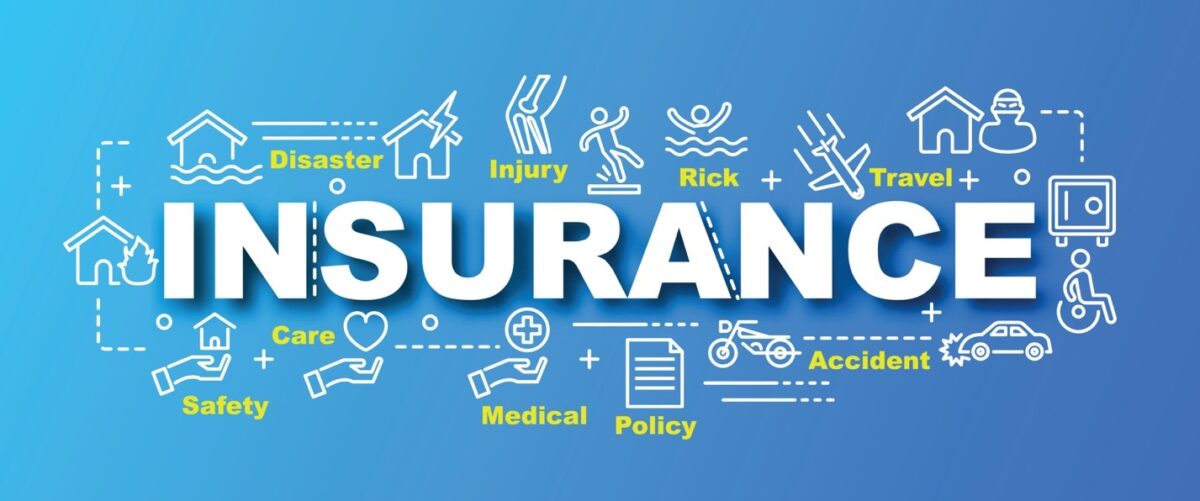Table of Contents
Overview
Cancer is a lethal illness that often remains undetected until it reaches an advanced stage. However, certain types of cancer can be identified early on, before they grow and metastasize. Early detection of cancer involves screening and diagnostic tests that can identify the disease in its initial stages.
Screening enhances the chances of detecting certain cancers early, thereby increasing the likelihood of successful treatment. It is crucial for everyone to be aware of the various tests and screenings available for cancer detection, the appropriate timing for these tests, and their eligibility for insurance coverage.
This is where you can discover the various tests that physicians commonly employ to detect and diagnose cancer, ascertain if it has metastasized, and track its progression during treatment.
Principles of Cancer Examination and Screening Process Conducted by Doctors

If you have concerns about cancer, your doctor may conduct a series of blood tests or other laboratory examinations, such as urinalysis or a biopsy of the suspicious area, to assist in making a diagnosis.
Blood tests are not typically definitive for diagnosing cancer or other non-cancerous conditions; however, they can provide your doctor with important clues about your body’s internal processes.
Even though doctors may request blood tests to search for indicators of cancer, this does not necessarily mean a cancer diagnosis has been confirmed. With these tests, the doctor will examine the following data:
Samples collected for blood tests are analyzed in a laboratory to detect signs of cancer. These samples may reveal cancer cells, proteins, or other substances produced by cancer. Blood tests can also inform your doctor about the functioning of your organs and whether you have cancer.
Blood tests that are utilized for cancer diagnosis include:
- A Complete Blood Count (CBC) is a routine blood test that quantifies the various types of blood cells in a sample. This test can indicate the presence of blood cancer by revealing an abnormal count or appearance of blood cells. Additionally, a bone marrow biopsy may be performed to further confirm a blood cancer diagnosis.
- Blood protein testing is conducted to assess the presence of various proteins in the blood, aiding in the detection of abnormal immune system proteins (immunoglobulins), which may be elevated in some individuals.
- Tumor marker tests detect chemicals produced by tumor cells in the blood. However, these markers can also originate from normal cells and may rise in non-cancerous conditions. These tests are primarily used to monitor individuals with breast, colorectal, or prostate cancer.
The tests mentioned above may vary for different types of cancer. For more details on the various tests and methods used in cancer detection, please refer to the description provided below.
Methods for Early Detection of Severe Types of Cancer

The following types of cancer are prevalent among the population; thus, understanding early detection is crucial to avoid fatal risksRisk Risk is a loss that occurs to the insured individual or object. Various bad possibilities could happen to someone.:
Methods for Early Detection of Severe Types of Cancer No.1
InsuranceWhat.com
Breast Cancer
Breast cancer typically impacts women between the ages of 40 and 44, and it is recommended that they undergo annual mammogram screenings. For women aged 45 to 54 and beyond, the ideal frequency is once a year. Screening is advised to continue as long as a woman is in good health and has a life expectancy of at least another 10 years. It is crucial for all women to understand the recognized benefits, limitations, and possible risks involved with breast cancer screening.
It’s important for women to be familiar with the normal appearance and feel of their breasts and to promptly report any changes to healthcare professionals.
Methods for Early Detection of Severe Types of Cancer No.2
InsuranceWhat.com
Cancer Affecting The Colon, Rectum, and Polyps
Starting at age 50, it is advisable for both men and women to undergo tests for the detection of polyps and cancers. These tests should include a colonoscopy every 10 years or a CT colonography (virtual colonoscopy) every 5 years. It is important to use multiple stool tests, as one test alone is insufficient. If any of these tests yield a positive result, a colonoscopy should be performed.
Tests capable of detecting early-stage cancers and polyps ought to be prioritized if they are accessible and you are agreeable to undergoing them. Should you have a heightened riskRisk Risk is a loss that occurs to the insured individual or object. Various bad possibilities could happen to someone. of colon cancer due to family history or other factors, it is advisable to follow an alternative screening schedule.
Methods for Early Detection of Severe Types of Cancer No.3
InsuranceWhat.com
Cervical Cancer
Cervical cancer screening is recommended to start at age 21 with a Pap smear test conducted every three years. Women who have undergone a total hysterectomy for reasons not associated with cervical cancer, and who do not have a history of cervical cancer or significant pre-cancer, should not undergo screening.
Women who have received the HPV vaccine should continue to adhere to the screening guidelines appropriate for their age group.
Certain women, owing to their medical history such as HIV infection or organ transplants, may need an altered cervical cancer screening schedule.
Methods for Early Detection of Severe Types of Cancer No.4
InsuranceWhat.com
Lung Cancer
Screening for individuals at high risk of lung cancer, such as smokers, involves multiple stages, particularly for those over the age of 50:
An individual who has smoked a pack of cigarettes daily for more than 29 years, or more than a pack per day for 15 years, should undergo a CT scan. This scan is performed on the chest to screen for potential issues.
Methods for Early Detection of Severe Types of Cancer No.5
InsuranceWhat.com
Prostate Cancer
Prostate cancer is prevalent among older men. It is recommended that men begin PSA blood testing, which detects prostate cancer, at age 50, with or without a rectal exam. The frequency of testing should be based on individual PSA levels.
It is crucial for the public to understand the importance of early cancer detection to mitigate fatal risks. Recognizing the dangers and acknowledging the high costs of medical treatment, it becomes apparent that enrolling in an insurance program is a prudent decision. The following are the tips.
Cancer treatment costs are very expensive, join the health insurance program, here are the tips!

Tips for Selecting Suitable Health Insurance No.1
InsuranceWhat.com
The high cost of cancer treatment underscores the importance of enrolling in a health insurance program. Below are tips for selecting suitable health insurance:
Register Now; Don’t Wait Until You’re Sick
Many prospective insurance customers harbor the misconception that health insurance should only be obtained when sick or after a serious illness has occurred. This belief is fundamentally flawed; enrolling while healthy is not only more cost-effective but also safeguards against the financial risks of high medical expenses.
Tips for Selecting Suitable Health Insurance No.2
InsuranceWhat.com
Understand the “Pre Existing Condition” and the Waiting PeriodWaiting Period The period after the policy is issued in which the insurance policy does not cover the insured’s medical expenses until a certain period. The period when there is no premium payment due to certain reasons., Choose the Shortest
In the process of selecting a health insurance product, it’s common to overlook the details regarding pre-existing conditions and the associated waiting period. Insurance companies typically implement a waiting period before coverage becomes active. ClaimsClaim The demands are given by the insurance policyholder to get the right properly so that the insurer pays the conditions according to the existing procedure. reimbursement is only possible after this waiting period has concluded. It’s crucial to consider these factors when making a choice.
Tips for Selecting Suitable Health Insurance No.3
InsuranceWhat.com
Emergency Care and Hospitals, ClaimClaim The demands are given by the insurance policyholder to get the right properly so that the insurer pays the conditions according to the existing procedure. System and Conditions (If Double Claim is Better)
Determine which emergency conditions and hospitals are included in the selected insurance coverage. Verify whether contacting a primary care physician is required prior to receiving emergency care. Inquire about the terms of the claim, such as reimbursement, cash plan, or based on the actual bill amount. Ideally, claims should be processed according to the bill amount and through a card system, rather than reimbursement.
Seek an insurance product that allows for double claims to mitigate the risk of surpassing the claim limit that the chosen insurance company cannot cover.
The Conclusion
Seek Pure Insurance Options Without Investment Components, and if Available, Consider Additional Services
The primary purpose of insurance is to provide protection. Therefore, if you seek maximum protection, opt for pure insurance and resist the allure of insurance combined with investment. Additionally, evaluate whether the policyPolicy The policy is a binding agreement and is agreed upon by the insurance company and policyholder in writing. An agreement made by the policyholder with an insurance company. offers supplementary services like alcohol rehabilitation, mental health care, counseling, home health care, etc.
The threat of cancer is universal. The exorbitant expenses associated with cancer treatment necessitate preparation for this lethal ailment. Enrolling in an insurance program is a prudent measure. It is crucial to have a thorough understanding of the early detection of cancer. Once informed, one should not delay joining an insurance program until illness strikes. Ideally, one should enroll in an insurance program while in good health, as advised above.
Do you think you have other ideas about Secure Your Health: Early Cancer Detection and Insurance Selection? You can comment and share your thoughts below, or discuss more in the InsuranceWhat Forum. Also, read more articles about GLOBAL INSURANCE or other interesting insurance topic articles only at InsuranceWhat.com.





